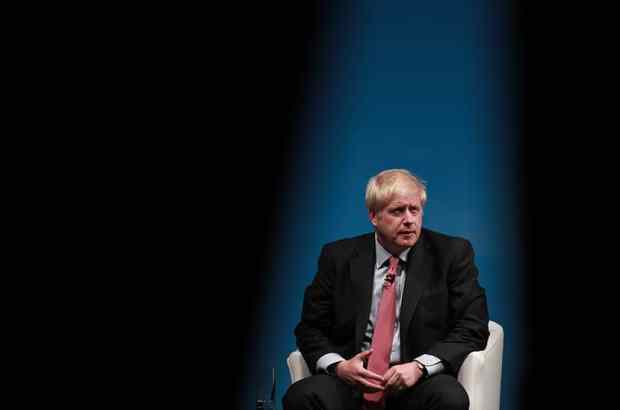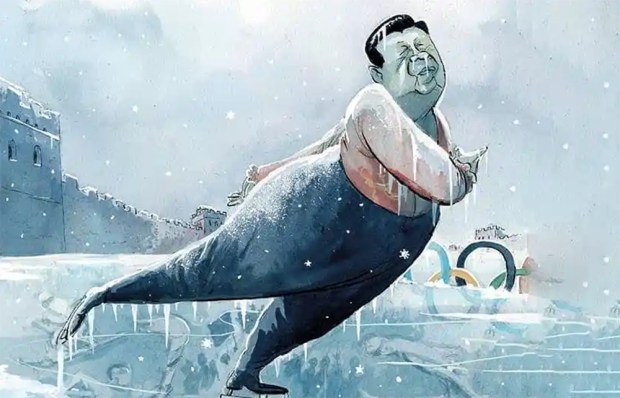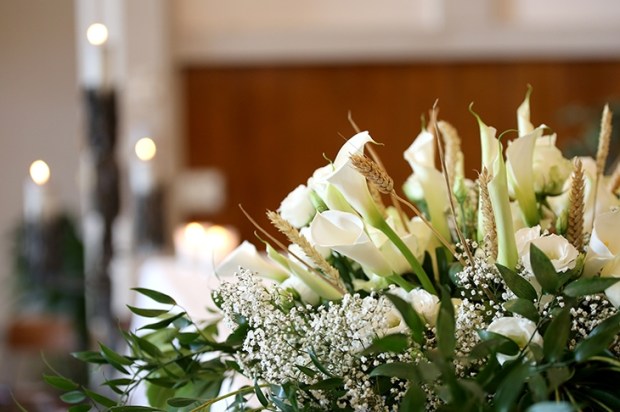A few years back, a hackneyed journalistic come-hither led me to a sober reckoning: would I write about someone alive today whom I especially admire? I couldn’t think of anyone I held in high esteem who wasn’t dead. Either I was surrounded by mediocrities, or I was an ungenerous, withholding jerk.
Keen to keep our Christmas issue nominally upbeat — not Shriver’s strong suit — I’m pleased to discover that these days I admire a host of folks who aren’t dead. Some are colleagues or acquaintances; others I’ve never met. While they don’t all embrace the same catechism, they’ve one thing in common: they depart from establishment orthodoxy on Covid-19. What they share, then, is an anti-catechism.
I’ve been vocal about my dismay over unquestioning public capitulation to wholesale rescindment of civil liberties during this pandemic. I’ve raised the alarm over the irrationality of divisive but bizarrely popular vaccine mandates and passports, when the inoculated also catch and spread this disease. I’ve decried the collusion of government, Big Tech and the mainstream media, all singing in such perfect harmony that they could go on tour as a Motown revival band. But the Covid story has not altogether been one of unrelenting conformity. Often at some cost to themselves, a range of British journalists, academics, doctors and, yes, even politicians have sung piercingly off-key.
I’m therefore taking this seasonal opportunity to thank these perverse if not downright self-destructive outliers, upon whom for the past 20 months I’ve personally relied to maintain my sanity and my faith in humanity.
Beginning the second week of the UK’s original lockdown, our own Toby Young has doggedly put out a free daily newsletter, which is still the first thing I read when I get up. Lockdown Sceptics has now morphed into the more broad-based The Daily Sceptic, but under both titles the newsletter has encapsulated new scientific studies at odds with stock narratives, excerpted dissenting articles and provided a forum for isolated prisoners of quasi-police states like Australia. The bulletin has furnished hyperlinks to thousands of blogs, interviews, podcasts and essays that collectively reassure us not everyone is a robot or an idiot, and civilisation isn’t, or not completely, kaput. That newsletter is meaty enough to last through a large, strong coffee and compelling enough that some mornings the coffee gets cold.
On the Telegraph podcast Planet Normal, Allison Pearson and Liam Halligan have managed a beguiling balance of hard-hitting commentary and jocular repartee. They’ve never let up on NHS neglect of non-Covid patients and disappearing face-to-face GP appointments. Through my headphones in the kitchen, their congenial company has seen me through mounds of chopped onions, bulbs of peeled garlic and bags of individually shelled pistachios, even during the long months when asking friends over to help me eat all this stuff was against the law.
Former Supreme Court Justice Jonathan Sumption has tirelessly advanced the case that subjugating democracy to public–health tyranny puts the West in a grave political danger bound to persist beyond the pandemic. Ever temperate, articulate and urbane, Sumption bears a faint resemblance to my husband, who never twigs that I mean the comparison as a big compliment.
Every week, professional curmudgeon Peter Hitchens has given grumpy, disgusted and deliciously disdainful interviews on Talkradio. He’s even appeared in legacy media, in the rare instances a discouraging word about illiberal, epidemiologically inane government policy is allowed on mainstream shows. Hitchens’s primary shortcoming is a belligerent conviction that he’s the only person standing up to the new authoritarianism. Look around you, Peter. You may spurn the helping hand, but you have confederates.
The crew at Spiked, among them Brendan O’Neill, Fraser Myers and Tom Slater, have remorselessly produced Covid content against the grain; ditto the faux-naïf self-styled nerds at Triggernometry. True to its name, UnHerd has consistently run pieces that contest received coronavirus wisdom, and I’d particularly commend terrific recent essays by Paul Kingsnorth (‘How Fear Fuels the Vaccine Wars’) and Matthew Crawford (‘The New Public Health Despotism’). Along with many other freelancers, Ross Clark, Matt Ridley and Douglas Murray have swum against an exhausting tide of ideological uniformity. The oncologist Karol Sikora has warned about the dire consequences of blinkered obsession with Covid for cancer patients. Epidemiologists such as Sunetra Gupta and Carl Heneghan have put reputations on the line to interrogate ‘known facts’ in their profession. Shockers, even a handful of British politicians have stuck up for their constituencies’ civil rights, including MPs Steve Baker and Sir Desmond Swayne (‘Masks are about sending a message — well I don’t like the message!’).
Even if you dismiss these apostates as crackpots, you might at least concur that a society whose public voices all chime with the government’s line is unwholesome. From now on, what constrains the state from imposing previously unthinkable restrictions on civil liberty to achieve whatever capricious end it wishes to attain? Are vaccine side effects under-reported? Why do the double–vaccinated account for so many infections? Do vaccine-passport schemes achieve anything? Do school closures? What hard data supports mask wearing? Whatever their answers, the raising of such questions is in the larger public interest.
For the most part, I’ve found the pandemic’s lessons on human nature to be depressing. Lo, most people are easily manipulated through fear, so that citizens in seemingly stable, storied democracies can be persuaded to trammel their constitutions over the course of a few days. Most people contain a kernel of authoritarianism that only requires the right circumstances to germinate. Most people can be enticed to gleefully rat on their neighbours. Most people delight in viciously demonising an outgroup.
Yet just this once let’s celebrate that every-one isn’t ‘most people’. We haven’t the space to pay tribute to all the dissidents who have demonstrated a rare capacity for independent thought during what long ago became a more political than medical crisis, but you know who you are. Merry Christmas, heretics.
Got something to add? Join the discussion and comment below.
Get 10 issues for just $10
Subscribe to The Spectator Australia today for the next 10 magazine issues, plus full online access, for just $10.
You might disagree with half of it, but you’ll enjoy reading all of it. Try your first month for free, then just $2 a week for the remainder of your first year.















Comments
Don't miss out
Join the conversation with other Spectator Australia readers. Subscribe to leave a comment.
SUBSCRIBEAlready a subscriber? Log in